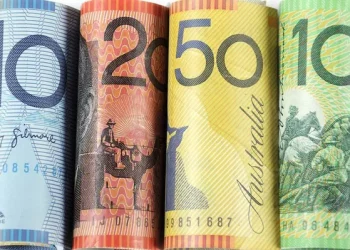In today’s global economy, currency conversion plays a vital role in international trade, travel, and investments. As a foreign exchange (Forex) trader or even a casual traveler, understanding how to convert currencies accurately is essential. This article will explore the current exchange rate of 48 Chinese Yuan (CNY) to United States Dollars (USD) and delve into the broader implications of currency conversion, factors influencing exchange rates, and practical tips for traders and travelers alike.
Understanding Currency Conversion
Currency conversion is the process of exchanging one currency for another. It is essential for various activities, such as:
International Trade: Companies involved in exporting or importing goods need to convert currencies to facilitate transactions.
Travel: Tourists must convert their home currency into the currency of the destination country to make purchases.
Investments: Investors often trade in different currencies and need to convert their investments into their home currency for profit realization.
To convert 48 Yuan into USD, we first need to understand the current exchange rate. The exchange rate is the value of one currency in relation to another and fluctuates due to various factors, including economic indicators, market sentiment, and geopolitical events.
Current Exchange Rate
As of the latest data, the exchange rate for CNY to USD can vary. For example, if the exchange rate is approximately 1 CNY = 0.14 USD, we can calculate:
48 CNY×0.14 USD/CNY=6.72 USD
Thus, 48 Yuan would be approximately 6.72 USD at this rate. However, exchange rates fluctuate constantly, so it is essential to check real-time rates from reliable financial news websites or currency conversion apps before making any transactions.
Factors Influencing Exchange Rates
Several factors influence the exchange rates between currencies. Understanding these can help traders and individuals make informed decisions.
1. Economic Indicators
Economic indicators such as Gross Domestic Product (GDP), inflation rates, and employment figures play a crucial role in determining a country’s economic health. A strong economy typically leads to a stronger currency, while a weak economy can devalue it. For instance, if China’s economy shows robust growth, the Yuan may strengthen against the USD.
2. Interest Rates
Central banks influence currency values through interest rates. Higher interest rates offer lenders in an economy a higher return relative to other countries. As a result, higher interest rates attract foreign capital, leading to a stronger currency. Conversely, lower interest rates can lead to depreciation.
3. Political Stability and Performance
Political stability and government performance can significantly impact currency values. Countries with less risk for political turmoil are more attractive to foreign investors, thereby strengthening their currency. For instance, if the Chinese government implements policies that promote economic stability, the Yuan may appreciate.
4. Speculation
Currency traders and investors often engage in speculation, betting on the future direction of currency pairs. If traders believe that the Yuan will strengthen against the USD in the future, they may buy large amounts of Yuan, increasing demand and consequently its value.
5. Trade Balances
A country’s trade balance, which is the difference between its exports and imports, can influence its currency. A surplus (more exports than imports) generally strengthens a currency, while a deficit (more imports than exports) can weaken it. China has historically maintained a trade surplus, which supports the value of the Yuan.
Practical Implications of Currency Conversion
Understanding how much 48 Yuan is in USD has practical implications for various stakeholders:
For Travelers
Travelers should be aware of currency conversion rates to budget effectively for their trips. Knowing the approximate value of 48 Yuan helps in understanding the cost of goods and services in the local market. Additionally, travelers should consider:
Currency Exchange Fees: Banks and currency exchange services often charge fees, which can impact the effective exchange rate. It’s wise to compare rates and fees before exchanging money.
Using Credit Cards: Many credit cards offer competitive exchange rates, but it’s important to check if foreign transaction fees apply.
For Businesses
For businesses involved in international trade, understanding the exchange rate is crucial for pricing strategies and profitability. Companies must consider:
Pricing Products: Businesses exporting goods to the U.S. must price their products competitively while accounting for currency fluctuations.
Hedging Strategies: Companies can use financial instruments like options and futures to hedge against unfavorable currency movements.
For Investors
Investors must pay close attention to currency fluctuations as they can significantly impact the value of international investments. Key considerations include:
Diversification: Investing in foreign currencies can provide diversification but also involves risk.
Economic Analysis: Investors should analyze economic indicators and geopolitical events to make informed investment decisions.
Conclusion
In conclusion, converting 48 Yuan to USD requires an understanding of the current exchange rate and the various factors that influence currency values. Currency conversion is essential for travelers, businesses, and investors, each of whom must consider the practical implications of exchange rates on their activities. As the global economy continues to evolve, staying informed about currency fluctuations and market dynamics will be vital for anyone engaged in foreign exchange trading or international transactions.
By understanding these principles, you can make better-informed decisions whether you’re trading on the Forex market or simply planning your next international trip. Remember to always check real-time rates and consider fees associated with currency conversion to get the best value for your money.
Related Topics:























